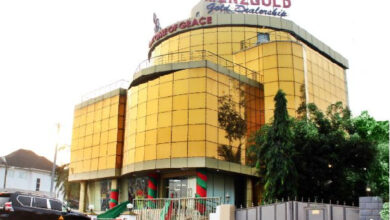Ghana Surpasses IMF Reserve Target Ahead of Schedule, Signaling Economic Resilience

Ghana has exceeded a key target under its International Monetary Fund (IMF) program more than a year ahead of schedule, in what is being hailed as a significant achievement toward restoring macroeconomic stability and rebuilding investor confidence.
According to the latest IMF staff-level review, Ghana’s gross international reserves have surpassed the benchmark initially set for May 2026, marking a notable milestone under the country’s ongoing $3 billion Extended Credit Facility arrangement.
Data from the Bank of Ghana reveal that as of February 2025, reserves stood at $9.3 billion, representing the equivalent of four months of import cover—well above the IMF’s reserve accumulation target.
A Turning Point for Ghana’s Economic Outlook
Economic analysts have described the achievement as a strong indicator of resilience and effective policy implementation, especially after recent years of fiscal and currency volatility. The increase in reserves is expected to boost investor confidence, support the stability of the Ghanaian cedi, and provide a buffer against external shocks.
“This is a positive signal to global markets that Ghana is on the right path,” said a senior economist with knowledge of the IMF program. “The improved reserves position provides credibility to the country’s reform agenda and strengthens its negotiating position in global finance circles.”
Next IMF Disbursement Set for June
Following the completion of the fourth review under the program, Ghana is now expected to receive a $370 million disbursement from the IMF in June 2025. The funding is anticipated to bolster the central bank’s efforts in maintaining foreign exchange stability and enhancing macroeconomic management.
In addition, the government has committed to improving coordination between fiscal and monetary authorities, aiming to anchor inflation expectations, reduce price volatility, and consolidate the gains made under the reform program.
Looking Ahead
With more than a year left in the three-year IMF arrangement, Ghana’s early achievement of this key target could set the stage for further progress in fiscal consolidation, debt sustainability, and economic growth.
The development is likely to be welcomed by both local and international investors, development partners, and Ghanaians at large who are eager to see continued improvements in the country’s economic trajectory.
Source: Thepressradio.com| Ogyem Solomon





